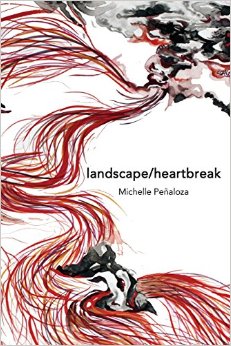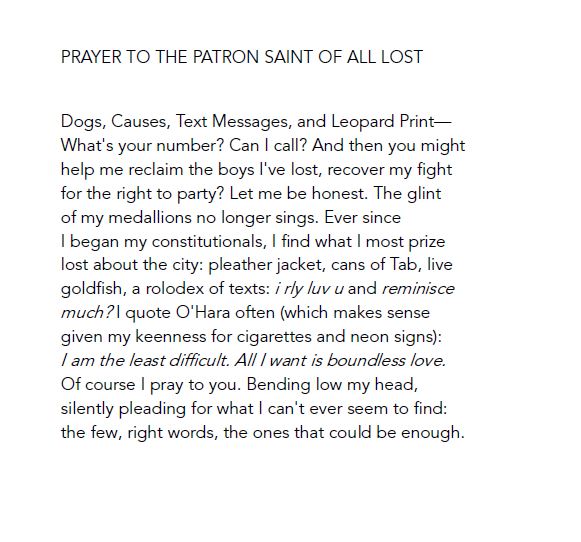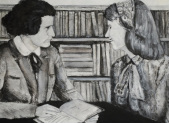Praise For landscape/heartbreak:
Peñaloza's poignantly beautiful landscape/heartbreak is more than a suite of breakup poems, its own veritable tradition in American poetry. Hers is a sequence that plumbs the meaning of what it means to love, sacrificing to secret away bits and pieces of one's self whose other parts remain scattered on corners, in parks, and bridges. This collection is about the business of reconciling memories and ghosts, the toughness in learning how to breathe again. —Major Jackson
I’ve been in love with landscape/heartbreak since before it was written, from the moment I first learned of Michelle Peñaloza’s wild idea: to map heartbreak. What if strangers told their stories while wandering the avenues and backstreets of a city? What if trauma could be healed one footfall at a time? Peñaloza enacts an urban alchemy, transforming the walkers’ personal struggles into art and thereby coming closer to her own persistent ghosts. A collection for anyone who has ever had her (or his) heart stomped on. This means most of us. A powerful and exciting debut. —Susan Rich
The question—"What hurt you into poetry?"—lies at the center of Michelle Peñaloza's landscape/heartbreak. And her poems urge us to seek the answer, following Peñaloza's speaker on her sojourn where walking and breathing create the meditative cadence to lull the body into the ecstatic state necessary for conjuration. From the beauty of these poems emerge the ghosts of those loves that have splintered us into jagged pieces. As we traverse Peñaloza's lyrical landscape, the "sueded/beads of unopened wild poppies" and "renegade ferns/growing upon the stumps of old docks" smooth over the serrated edges of what cuts us deep. This is a marvelous and haunting collection. —Oliver de la Paz
As you read this remarkable collection, you might think that each poem begins with two people walking through a city. But then, dear reader, you realize that it's no longer two people in the distance, for you've been invited on the journey as well. These poems will transport you like that, and then they'll walk beside you through a landscape of heartache and longing. While there, "You can look back," Peñaloza writes, "remember the stories beneath all this shine." And these stories do shine. And you will remember them. —Matthew Olzmann



